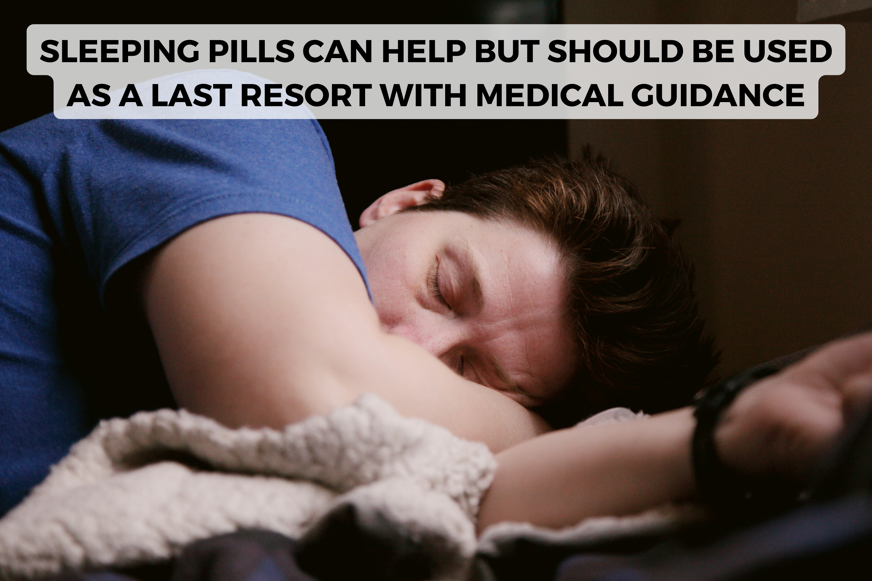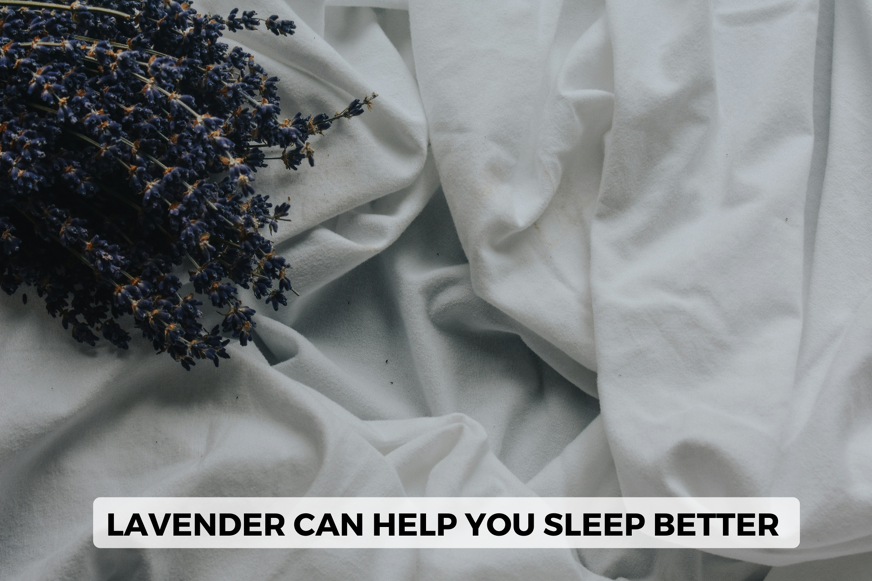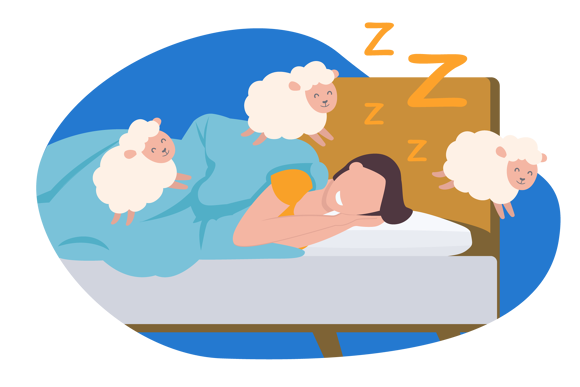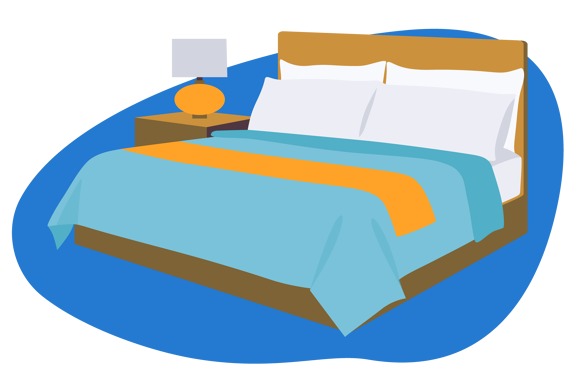What are sleeping pills?
Sleeping pills are medicines [1] designed to help you drop off faster, wake up less often, and feel more rested overall.
However, not every sleeping pill is the same. 🤔
Their effects, potential risks [2], and side effects can differ greatly depending on the active ingredient.
Here’s a quick overview of the main types you might come across:
- Benzodiazepines: These calm you down and reduce anxiety. Unfortunately, they can quickly lead to dependency and aren't suitable for long-term use.
- Z-drugs: These are more modern sleeping pills. While they often cause less of a "hangover" effect, they still carry a high risk of addiction.
- Antihistamines: You can buy these over-the-counter. They were originally developed for allergies but cause drowsiness, which can help some people fall asleep faster.
- Melatonin: This is a natural hormone your body produces, which helps regulate your sleep-wake cycle. Melatonin is available in the UK with a prescription and is frequently used for sleep and well-tolerated. This is also why many people ask if melatonin is a sleeping pill.
It's crucial to remember that sleeping pills often only treat the symptom - sleeplessness - rather than addressing the underlying cause.
How do sleeping pills work and what are common side effects?
Sleeping pills function by specifically slowing down your central nervous system.
They reduce certain brain activities, making it easier for you to relax and eventually drift off.
This can offer short-term relief, particularly if you're feeling very restless or can't stop your thoughts from racing.

Many of these preparations can also increase your deep sleep phases, but this comes with its own drawback, such as:
- Feeling tired the next morning (often called the "hangover" effect)
- Difficulty concentrating or feeling a bit groggy
- Memory gaps if you wake up during the night
- Developing tolerance, meaning you'll need more for the same effect
- Experiencing withdrawal symptoms when you stop taking them
Because of this, you should never take them without professional medical advice, and only for a short time, always in consultation with your doctor.
When is it sensible to take sleeping pills?
Not every rough night's sleep automatically warrants reaching for a tablet.
However, there are specific situations where sleeping pills could help you cope with daily life [3]:
- After extremely stressful events, such as a bereavement, separation, or a shock
- When you have severe sleep deprivation leading to health issues (for example, circulation problems)
- Before important appointments or when adjusting to time changes, like with jet lag [4] or due to shift work
The golden rule, however, remains: use them only temporarily, never for the long term.
The longer you take sleeping pills, the harder it becomes to stop.
Natural alternatives to sleeping pills
Thankfully, there are plenty of ways to get a good night's sleep without needing medication.

In the long term, it's actually more valuable to look at other sleep hygiene tricks, such as optimising your bedroom environment or looking at aromatherapy for sleep.
Here are some tips:
- Good sleep hygiene: Try to stick to regular sleep times, avoid bright lights, and switch off all screens an hour before bed.
- Herbal sleep aids: Ingredients like Valerian, hops, passionflower, or lavender can have a calming effect and naturally support your sleep. 🪻
- Melatonin supplements: In low doses, these can be helpful for jet lag or shift work, but again, their use should be limited.
- Cognitive Behavioural Therapy for Insomnia (CBT-I): Especially for long-term sleeplessness, studies [5] show this is the most sustainable solution.
These methods might require a bit of patience, but over time, they are often far more effective than any sleeping pill.
Sleeping pills are a great short-term aid
Sleeping pills can offer temporary relief, particularly during very stressful periods or when you're suffering from acute sleep deprivation.
However, they aren't a long-term fix.
The risks involved, such as dependency, side effects, and developing a tolerance, clearly outweigh the benefits over time.
Therefore, always try natural alternatives first and pay attention to your sleep hygiene.
If your sleep problems persist for weeks, please seek advice from your GP.












Alternatively, message us directly via the Contact Us page.